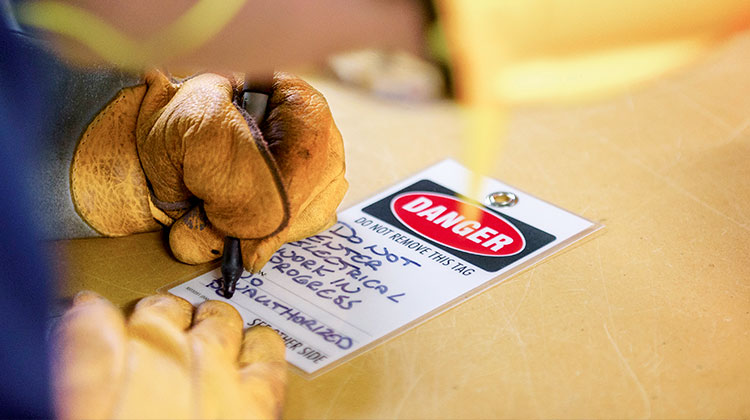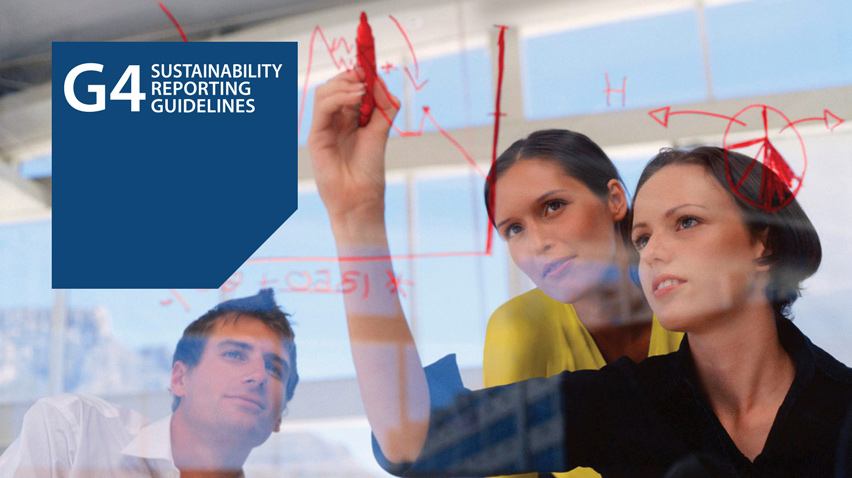Personal, process and transport safety
Personal safety
Everyone who works for us, or with us, has an important part to play in making Shell a safer place to work. We have been working to create an environment in which our employees and contractors take personal responsibility for achieving Goal Zero. This is more than a culture of compliance, but one in which people feel looked after. Our aim is to have a more motivated, productive, healthier and safer workforce.

Everyone working at Shell must take responsibility for achieving Goal Zero.
Caroline, Alberta, Canada.
All employees and contractors must follow Shell’s 12 Life-Saving Rules, which cover the most critical safety hazards that have caused loss of life in our activities. We introduced the rules in 2009 and have since achieved a notable reduction in fatalities and injuries. Personal responsibility also extends to intervening to prevent unsafe conditions, and respecting fellow workers and the communities in which we work.
The safety of our contractors is an important area of focus, as we have a large contractor workforce which often performs activities with higher safety risks. (See Contractors and suppliers). We work with our contractor partners to ensure they understand our safety requirements and expectations, and we help them to build skills and expertise where needed.
For example, Shell is the world’s largest contractor of vessels, with around 1,300 on the water on any given day. We introduced a safety programme to encourage contractor partners and the industry to share their knowledge and experiences. This has led to better leadership and safety behaviour. The number of serious or potential incidents has been reduced by more than half within Shell since 2011. In 2015, the programme won a Shell CEO’s HSSE & SP award which recognises outstanding performance in safety.

Rhona Flin
Emeritus Professor of Applied Psychology, University of Aberdeen,
Aberdeen, UK
External opinion
“Effective safety management requires more than engineering skills: it needs to be complemented with an understanding of human factors and organisational behaviour. Shell appreciates that a broad scientific perspective is essential for risk control and regularly sponsors psychological research on safety.
Our projects at the University of Aberdeen – based on platforms, rigs and tankers – have provided insights into what makes a good safety leader. This led to the development of an appraisal tool for the energy industry that Shell made publicly available.
Recently, we studied how Shell managers remain vigilant and respectful of operational risks, even when everything is apparently running smoothly. This kind of behavioural research shows the willingness of a company to be self-critical. It is a powerful component for sustaining operational and process safety.”
Process safety
Process safety starts at the early phase of designing and building facilities and continues throughout their life cycle, making sure they are operated safely, well maintained and inspected regularly. Our global technical and operational safety standards are in place to ensure that hazardous materials are safely contained. If an incident happens, we learn from it to help prevent any similar incidents from occurring again.
We also make sure that we have the necessary resources to deal with spills, leaks, fires and explosions. Our emergency-response plans are routinely tested and improved after simulation exercises.
Transport safety
Aviation, rail, maritime and road transport activities to move people, product and equipment are an area of risk within our industry. Risks vary across different types of transport. We develop best-practice standards within Shell, and work with specialist contractors and industry bodies, where needed. For example, we are focusing on reducing the risks involved when we load and unload product. (For more on road transport see box)
Road safety
Road safety is a global concern. The World Health Organisation states that there are around 1.25 million deaths each year from road traffic incidents. Shell is always working to improve road safety among our drivers in the 70 countries where we operate, with a greater focus on countries that have a higher risk.
Our road safety approach focuses on the skills and behaviour of the driver, the condition of the vehicle, the local environment and road conditions. These are supported by activities such as our global mandatory road safety training programme for drivers as well as by routine audits of our contractor road safety capabilities. Since introducing our first global driver safety programmes in 2008, there has been a significant decline in fatal road incidents across Shell. We recorded no road fatalities across our own operations in 2015.
Our employees and drivers are required to follow Shell’s Life-Saving Rules at all times. These include following a prescribed route for road journeys, wearing a seat belt, not using mobile phones or any other devices while driving and adhering to speed limits. Monitoring systems are in place in many of our vehicles to give drivers feedback and coaching on their driving performance. We also try to reduce road transport risks by reducing the number of journeys – using buses to transport employees, and marine vessels and trains to transport equipment.
We think it is important to share our experience of effective road safety with governments and non-governmental organisations, and to learn from others. We are board members of the Network of Employers for Traffic Safety and the Global Road Safety Partnership. (See Working in specialist areas). We also learn from and share our knowledge with companies outside of the oil and gas industry.
